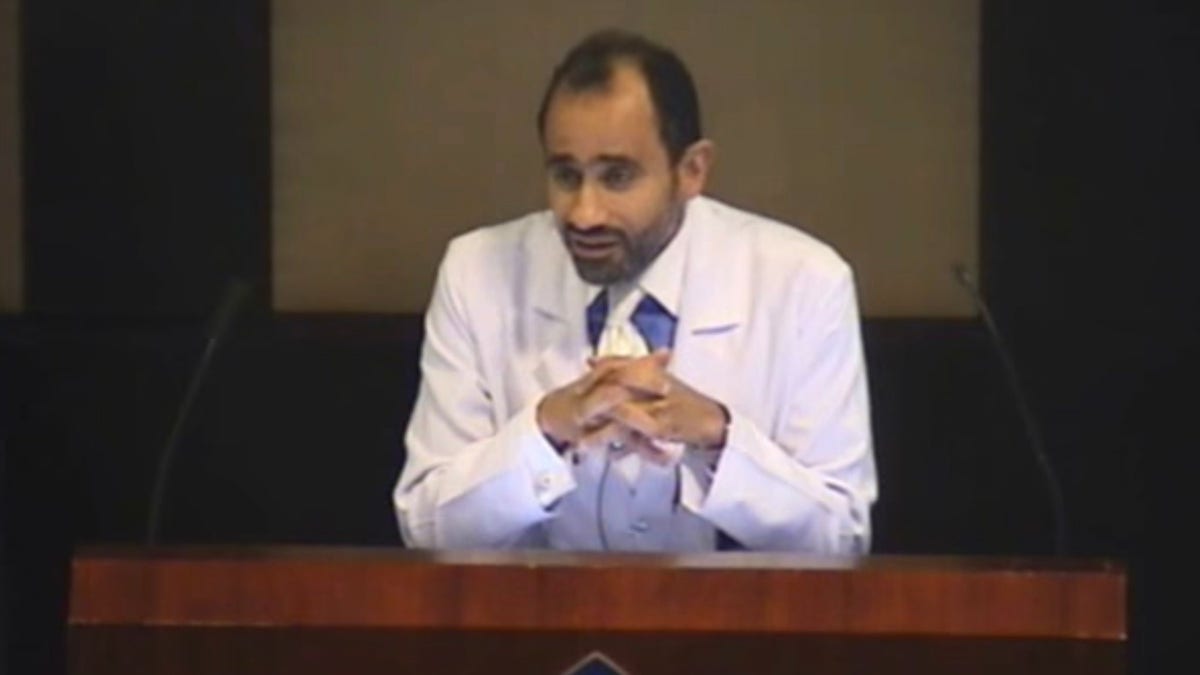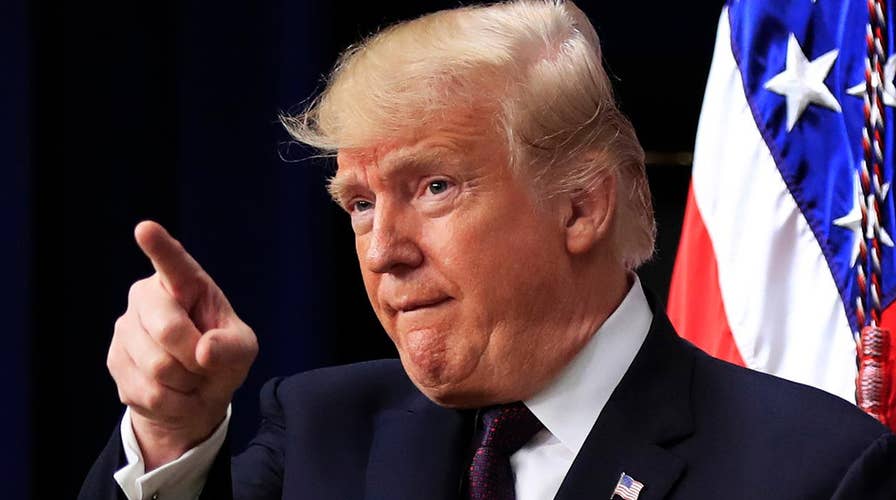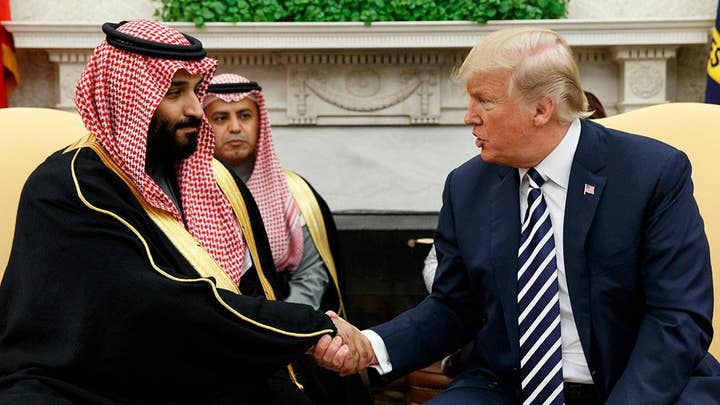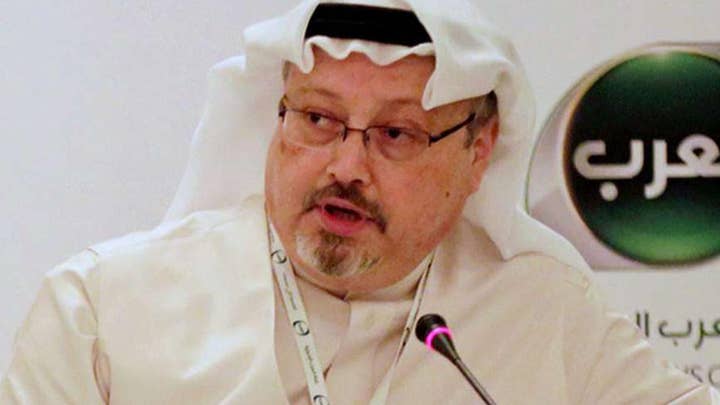Trump faces bipartisan backlash for Saudi statement
Lawmakers on both sides of the aisle balk at President Trump's decision to stand with Saudi Arabia after the murder of Saudi columnist Jamal Khashoggi; Garrett Tenney reports from Washington.
A dual Saudi-American citizen has been detained in Saudi Arabia for over a year after the country's crackdown on corruption and his status has raised new criticism of President Trump's reluctance to punish the kingdom over issues that do not directly affect American citizens.
The White House has been barraged with criticism over its stance towards Saudi Arabia in the wake of the murder of Jamal Khashoggi, a Washington Post writer whose death in Turkey was allegedly ordered by Crown Prince Mohammed bin Salman.
The murder of the writer prompted outrage across the world, with some countries such as Germany ending its arms deal with Saudi Arabia. A U.S. official told The Associated Press that intelligence officials have concluded that bin Salman ordered the killing.
Trump fired back against the criticism that the U.S. isn’t doing enough, saying Khashoggi wasn’t an American citizen and it happened on Turkish soil. “Well, it's not our country. It's in Turkey. And it's not a citizen, as I understand it,” he said last month.

Walid Fitaihi, a Harvard-trained doctor, television host and motivational speaker was arrested last year together with 17 other people in what bin Salman touted as a crackdown on corruption.
But as he made the comments, an American doctor was spending his days in prison as part of bin Salman’s purge of businessmen, princes, clerics, scholars and activists in a bid to consolidate power, the New York Times reported.
Walid Fitaihi, a Harvard-trained doctor, television host and motivational speaker was arrested last year together with 17 others in what bin Salman touted as a crackdown on corruption. The detained individuals reportedly underwent harsh treatment and abuse, with at least one person dying due to abuse in detention.
Unlike some other detainees, who managed to free themselves after pledging loyalty to the new Saudi leadership or paying money, Fitaihi was transferred to prison for incarceration despite not being formally charged with any crime.
Fitaihi obtained his American citizenship more than a decade ago when studying and practicing medicine in the U.S. He once was registered to vote in U.S. elections and moved back to Saudi Arabia sometime in 2006. Upon his return to Saudi Arabia, he founded a private hospital.
After the September 11, 2001 terror attack in the U.S., Fitaihi was quoted by the Denver Post condemning the attacks. “There are Muslims who died, Christians who died, Jews who died — it’s a crime against humanity,” he said. “It’s a test for us as a nation.”
In 2004, Fitaihi came under fire for revelations that he made anti-Semitic comments in Arabic newspapers, including calling Jews “perpetrators of the worst of evils” and to have said they control “the power of the media,” according to the Times.
CIA DETERMINES KHASHOGGI’S DEATH WAS ORDERED BY SAUDI CROWN PRINCE MOHAMMED BIN SALMAN: REPORT
The Trump administration has long sought to free imprisoned Americans across the world, taking harsh measures against hostile countries in an attempt to force their release.
Earlier this year, three Americans were freed from North Korea who were accused of hostile acts against the communist state. The President also campaigned to bring back American college student Otto Warmbier, who suffered brain damage and died after being held captive in North Korea for 15 months after an ill-fated trip to the country in 2015. More recently, Trump imposed trade sanctions on Turkey, forcing the release of Pastor Andrew Brunson.
But it appears the Trump administration hasn’t made attempts to free Fitaihi, except for “routinely request[ing] consular access to all American citizens that have been detained in Saudi Arabia,” according to the Times.
Khashoggi, the slain writer, once spoken out against about his friend’s arrest.
“What has happened to us?” Khashoggi tweeted. “How can someone like Dr. Walid Fitaihi be arrested and what are the justifications for it?”
“Everyone is in a state of confusion and helplessness, there is no one you can go to,” he added. “God help us.”
















































